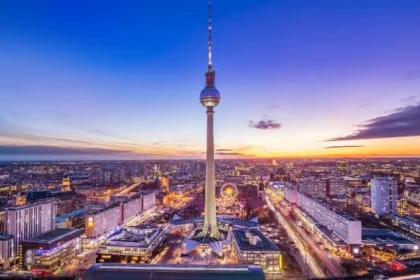cost of traveling from South Africa to Nigeria; Nigeria offers an exciting travel experience with its vibrant cities, tropical beaches, and safaris. It is an accessible destination for English speakers and has a similar culture to South Africa. However, the financial aspects of visiting Nigeria, including visas, flights, insurance, and daily expenses, can be overwhelming. This guide provides an estimated budget for a trip to Nigeria and money-saving tips to help you manage your travel costs.
Secure affordable airfare:
Research various options thoroughly to find the best airfare deals since flights tend to be one of the biggest expenses. Roundtrip flights from Johannesburg to Lagos or Abuja can range from R3,500 to R12,000, depending on the season, airline, and layover locations. Explore different carriers such as South African Airways, Kenya Airways, Emirates, and Ethiopian Airlines. Booking at least six weeks in advance can lead to lower prices and better availability. Traveling during the off-season (April to August) can also reduce costs. Keep an eye out for sales and set price alerts to grab the best deals. If available, consider budget airlines or indirect routes.
Arrange local accommodations:
When it comes to lodging, Nigeria offers a range of options, from luxury hotels to budget-friendly hostels. In major cities like Lagos and Abuja, a decent hotel room starts around R1,200 per night, while hostel dorm beds are about R500 and up. Accommodation prices decrease outside of big cities, with an average of R800 per hotel room and R250 per hostel bed. Platforms like Airbnb provide alternatives, offering apartments, cottages, and homestays starting from R600 per night. Couchsurfing with locals is another affordable option. Choosing affordable lodging is crucial for managing trip expenses.
Get around using public transit:
Public transportation is a cost-effective way to navigate Nigeria’s bustling cities. Lagos and Abuja have extensive bus systems that are much cheaper than taxis. Abuja also has a metro system, while Lagos is in the process of building its first metro line. Intercity travel can be done through buses or domestic flights between main hubs. High-speed rail lines are also being developed for future trips. In smaller towns, you can use keke rickshaws and okadas (motorcycle taxis) for cheap transportation. Walking and cycling are feasible, depending on security. Opting for public transit will help you save money.
Budget for visas:
South Africans need visas to enter Nigeria, which requires budgeting for additional expenses. A single-entry visa costs around R1,000 and is valid for 90 days. The visa application process involves paperwork, processing time, and consulate fees. The Africa Visa Open Door program provides waived visa fees for African travelers, but there are restrictions. If you plan on an extended visit, a multiple-entry visa costs around R3,500. Make sure to confirm visa policies and factor in these fixed costs in your total budget. Having the necessary documents will prevent any issues later on.
Pack smart to save:
Your packing choices can impact your expenses abroad. Focus on versatile clothing that you can mix and match, along with lightweight layers for Nigeria’s tropical climate. Bring closed walking shoes and quick-drying athletic wear suitable for various activities. Don’t forget to pack sun protection such as hats, sunglasses, and sunscreen to avoid sunburn and skin damage. Using a filtered water bottle will eliminate the need to constantly buy plastic bottles. Opting for a secure daypack removes the need for additional bag costs. Advanced preparation will prevent you from overspending on gear or necessities later.
Budget for health precautions:
Taking certain health precautions will ensure your well-being in Nigeria but will add to your costs. Schedule necessary vaccinations, such as typhoid, hepatitis A/B, meningitis, rabies, and malaria pills, as well as routine boosters. Pack medications for potential issues like diarrhea, nausea, motion sickness, and allergies. Arrange adequate health insurance that covers emergency medical evacuation if needed. Don’t forget that COVID-19 testing might be required for return flights. These health-related expenses could range from an additional R2,500 to R5,000 or more, depending on your circumstances. Taking care of your health will help you avoid higher expenses later on.
Splurge on a local SIM card:
While purchasing a local Nigerian SIM card upon arrival may seem counterintuitive to saving money, the convenience and security benefits outweigh the relatively low cost (around R100-R200). Having a local SIM allows constant access to maps, travel apps, research, translator tools, and communication options. Renting phones often comes with exorbitant fees, so bringing an unlocked device and buying a SIM card domestically will keep connectivity costs down. Having access to remote maps and translation capabilities will reduce hassle and overspending when navigating unfamiliar areas.
Walk and use public transit:
Transportation expenses can quickly drain your budget if not planned carefully. Opt for metered taxis or ride shares instead of unmetered cabs with questionable pricing. Excellent bus systems are available for traveling between areas and cities. Trains or domestic flights are reasonable options for covering longer distances. For shorter trips, consider walking or using keke and okada. Unless you plan to visit remote areas, renting a car should be avoided since parking and fuel costs can quickly become expensive. Research your destinations and routes in advance to take advantage of affordable public transit whenever possible. Opting for affordable transportation will maximize your exploration opportunities.
Eat local staples:
Nigerian cuisine provides flavorful and affordable options to manage food expenses. You can find meat kebabs, rice dishes, and stews for under R50 per plate. Visiting markets and street food stalls allows you to purchase produce and homemade items at low prices. Consider grocery shopping for quick breakfasts and snacks. Instead of expensive imported drinks, opt for local lagers. With predominantly cash transactions, it’s easier to stick to a budget and avoid overspending with cards. Indulge occasionally in higher-end restaurants and hotels for a special treat. Overall, embracing local cuisine and street food will keep dining costs under control.
Use travel insurance:
Don’t let unexpected incidents deplete your travel funds. Comprehensive insurance provides protection against financial losses due to cancellations, delays, theft, injuries, evacuations, and more, depending on your policy terms. Look for policies offered by reputable providers like Travel Guard, Allianz, and Santam. Costs can range from R100 to R600, based on your trip duration, age, and coverage. Make sure your plan includes health coverage, emergency transportation, lost baggage, and trip interruption. Understand the exclusions as well. Having travel insurance brings peace of mind in case of unforeseen events.
With strategic planning, budgeting, and research, South Africans can enjoy an amazing adventure in Nigeria. Managing costs related to flights, visas, ground transportation, accommodation, food, and precautions is essential. Be selective when it comes to paying extra for convenience, safety, or luxury. Embrace local culture and travel styles to get the best value experience. Stay flexible and seek out deals to stay within your Nigeria trip budget. If you’ve visited Nigeria, feel free to share your money-saving tips in the comments!









